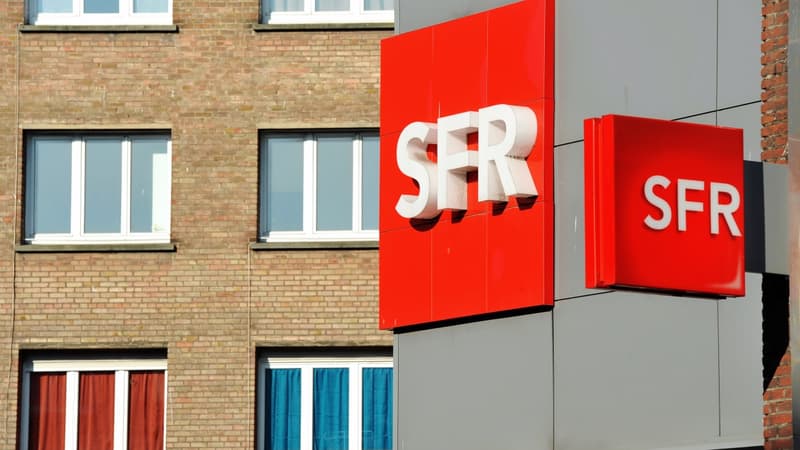“Bouygues Telecom has taken note of the decision of the Altice group to reject the joint non-binding offer presented yesterday by Bouygues Telecom, Orange and Free-Groupe Iliad.” The response is laconic, far from the serene enthusiasm of yesterday, October 14, in the afternoon.
Just a dozen hours after announcing the submission of a purchase offer, Altice indicated that it had “immediately rejected” it through Arthur Dreyfuss, its president and CEO. End of matter? Or rather a first round?
A rather narrow room for maneuver for Altice
Questioned by us before the announcement of the refusal, and a little later, Stéphane Beyazian, analyst at Oddo BHF, recalled that the three allied operators “are not exactly proposing to buy all of Altice France.” The offer of 17,000 million euros could be close to the value estimated by creditors.
But, for the part of the “founder, Patrick Drahi, this agreement is likely to be less favorable than what he has been accustomed to negotiating in his history,” he continues. Therefore, the owner of Altice would like to increase the bet in the face of a proposal in which potential buyers “are positioned rather at the minimum.” A first offer to which “it is not impossible that there will be an extension,” the analyst predicts. A precaution that Stéphane Beyazian immediately weighs, remembering that, furthermore, “there are no other buyers either.” In other words, Patrick Drahi has room to maneuver but not many options.
Buyers “in a position of strength”
De facto, the trio of operators is in a “position of strength”, in the opinion of Stéphane Beyazian. Especially since time could work against the director of Altice France. Indeed, according to information from La Tribune, denied by SFR’s parent company, Altice’s creditors could have reached a sale agreement in the next two years, without which Patrick Drahi could lose control of the management of Altice France.
Contacted by BFM Tech & Co, the operator declined to comment on the acquisition, as did Bouygues Telecom, which appears to be the driving force behind this triple alliance since last night’s announcement.
Therefore, it seems that we are entering a waiting phase in which the consortium formed by Bouygues Telecom, Free and Orange must now make a new proposal or wait for the wheel to turn.
The question now is how long this second phase of observation will last. If it lasted, SFR would be able to reverse a general trend that, for about ten years, has led it to lose customers, suffer a series of service quality problems and go through serious turbulence. Turbulence that belongs to the past, according to Arthur Dreyfuss, who declared to AFP, fifteen days ago, that “the headwinds are behind us.”
Will a three-operator market be less interesting for users?
There remains one question that everyone is asking: do SFR customers and all other operators have an interest in this sale? Are you interested in France going from a market driven by four operators to three?
Since last summer, many analysts, including those at JP Morgan, consider this possible acquisition as a source of market consolidation and strengthening the position of Bouygues Telecom, the main investor in the offer rejected by Altice. Although objectively this acquisition would also benefit Free and Orange.
What the three buyers mentioned in a little more detail in their press release last night, indicating that this acquisition would allow “reinforcing investments in the resilience of very high-speed networks, (…) consolidating control of strategic infrastructure for the country; and preserving a competitive ecosystem for the benefit of consumers.”
Asked about this last point, Stéphane Beyazian points out that currently the French market “is very promotional and that it would be a little less so with three large groups would be logical. But this is where the regulator’s response will also be,” he slides before delving into his analysis.
Freedom will continue to be the decisive factor
“I think it is a market that will continue to be quite dynamic in general. Prices are low and they are not going to rise,” he believes. However, he tells us that mobile offers between 9 and 12 euros could “return to price levels between 15 and 20 euros, for example.”
Stéphane Beyazian, on the other hand, does not see the more traditional offers (between 20 and 40 euros) skyrocketing, especially since Free will continue to play its role as a price breaker. Likewise, in the event of a purchase, it expects subscribers’ buyers to agree not to change prices for a certain period of time.
An optimistic position that coincides with the music played by Bouygues Telecom. The operator explained yesterday, during his press conference with the press, that the four or three-way market is in a phase of conquest, of customer acquisition. But we rarely attract customers by raising prices.
Therefore, there is no need to worry too much about the traders’ customers in general. And more specifically for those at SFR, is this sale good?
Source: BFM TV


